Embarking on the journey of learning German can be both an exciting and challenging adventure. But what if there were a more enjoyable and engaging way to master the language? Enter the world of German children’s books! These literary gems offer captivating stories, rich cultural insights, and opportunities to expand your vocabulary, all while immersing yourself in the whimsical universe of children’s literature. In this blog post, we will guide you through the benefits of learning German with German children’s books, the various types of books available, and practical tips for parents and teachers to make the learning experience even more enjoyable and effective. So, let’s dive into how to “learn German with German children’s books” and unlock the magic of language learning! Check out our guide for multilingual children.
Key Takeaways
- Learning German with children’s books provides an entertaining and educational way to develop language skills while gaining cultural insights.
- Popular German picture books offer a fun and effective way to boost vocabulary, learn moral lessons, and gain an appreciation for Germany’s history.
- Parents & teachers can use age appropriate stories along with active reading & activities to help learners better understand the material in a more enjoyable setting.
The Benefits of Learning German with Children's Books

Children’s books offer a delightful method to learn German. These books offer basic vocabulary that is perfect for language learners at any level. Engaging stories about young friends and their adventures keep readers interested, while also providing valuable cultural insights through children’s literature.
Imagine delving into a story about a little girl’s magical journey, all while expanding your German vocabulary and improving your language skills. The enchanting world of German children’s books awaits!
Building Basic Vocabulary
Children’s books are instrumental in building a robust vocabulary foundation, a key advantage of this learning method. These books are crafted with simple language and focus on basic vocabulary. For example, the German versions of popular children’s books like “The Very Hungry Caterpillar” and “My first picture dictionary: German-English” are perfect for beginner language learners who are looking to expand their vocabulary in an enjoyable way.
As you progress through these stories, you’ll find yourself picking up new words by the chapter, making learning German a truly immersive experience.
Engaging Stories for All Ages
Captivating stories in German children’s books appeal to readers of all ages, not just kids. From the delightful tale of “The Very Hungry Caterpillar” to the imaginative journey of “Oh, wie schön ist Panama” (Oh, How Beautiful Panama), these books cater to various interests and reading levels.
As you delve into these stories, you’ll not only be improving your German skills, but also gaining a deeper appreciation of the rich history and culture of Germany.
Cultural Insights through Children's Literature

Children’s literature opens the door to understanding a country’s culture and values. By reading German children’s books, language learners can gain a deeper insight into German culture and its language. These books often introduce themes that are relevant to German life, such as family, friendship, and the environment.
As you explore these stories, you’ll not only be improving your German language skills but also acquiring valuable cultural knowledge.
Top Free German Children's Books for Beginners
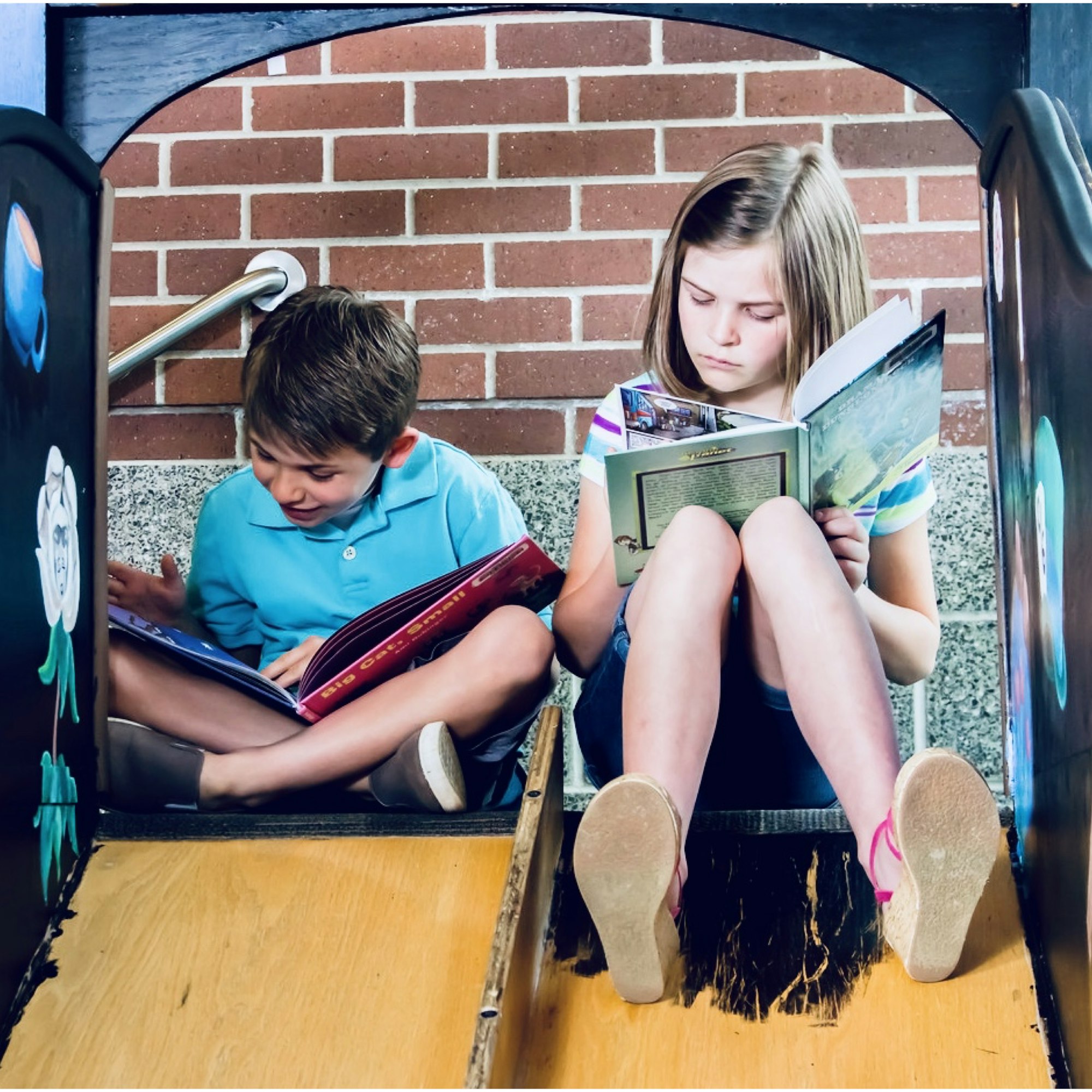
For those on a budget, there are plenty of free German children’s books available to help you embark on your language learning journey. These resources include online materials, public domain classics, and educational publications from federal German agencies.
It’s time to discover some top free resources that will get you reading and learning German swiftly.
Online Resources
The internet is a treasure trove for free German children’s books. One notable source is the website of renowned children’s author Hans Wilhelm, where you can find out-of-print editions of his books available for free download. These books are written in an easy-to-understand modern language and accompanied by delightful full-color illustrations.
Language learners can particularly benefit from reading both English and German versions of these books simultaneously, as it enhances reading comprehension.
Public Domain Classics
Public domain classics are works that are no longer subject to copyright protection and can be accessed freely by anyone. Some of the most renowned public domain classics for free German children’s books include “Der Struwwelpeter” and “Max und Moritz”.
For language learners interested beyond vocabulary building, these timeless tales provide a fascinating glimpse into German culture and history.
Federal German Agencies Publications
Federal German agencies also offer educational materials in the form of children’s books. One such publication is “German for Children: Fun, Activity-Based Language Learning”.
Designed to provide engaging and age-appropriate learning experiences, these publications serve as excellent resources for language learners of all ages.
Popular German Picture Books to Boost Vocabulary

German picture books, often considered a type of German book, are a fantastic way to boost your vocabulary while enjoying beautifully illustrated stories. These books often feature moral lessons and educational content, making them a great choice for language learners of all ages.
It’s time for German learners to examine some popular German picture books that can enhance your vocabulary and language skills.
Illustrated Stories
Illustrated stories offer a unique learning experience, as they combine text and visuals to tell a captivating story. Reading these stories will not only enrich your vocabulary but also boost your understanding of the narrative through the illustrations.
Some examples of illustrated stories include “The Little Prince” by Antoine de Saint-Exupéry, “The Cat in the Hat” by Dr. Seuss, and “The Gruffalo” by Julia Donaldson. These stories are perfect for language learners who want to enjoy a visually engaging learning experience while expanding their German vocabulary.
Moral Lessons
German picture books often contain moral lessons that can help readers understand the values and beliefs of German culture. By reading these stories, you’ll not only be learning new vocabulary but also gaining insights into the importance of kindness, empathy, and responsibility.
Some popular German picture books that focus on moral lessons include “Der Regenbogenfisch” (The Rainbow Fish) and “Die kleine Raupe Nimmersatt” (The Very Hungry Caterpillar). These stories are perfect for language learners who want to explore the world of German culture and values while expanding their vocabulary.
Fun and Educational
German picture books are not only entertaining but also educational. They often introduce new concepts and ideas to young readers, helping them learn about the world around them while improving their German language skills.
Some examples of fun and educational German picture books include “Das kleine Ich bin ich” (The Little I Am Me) and “Kleiner Eisbär, wohin fährst du?” (Little Polar Bear, Where Are You Going?). These books are perfect for language learners who want to combine education and entertainment while expanding their German vocabulary.
RELATED:
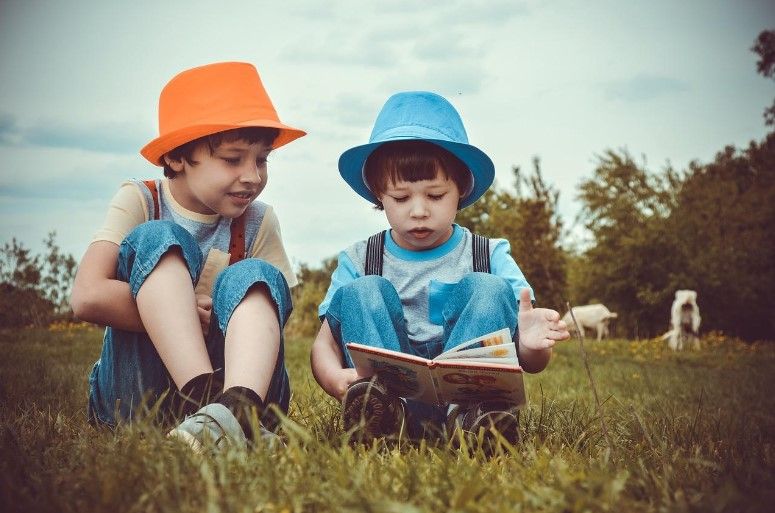
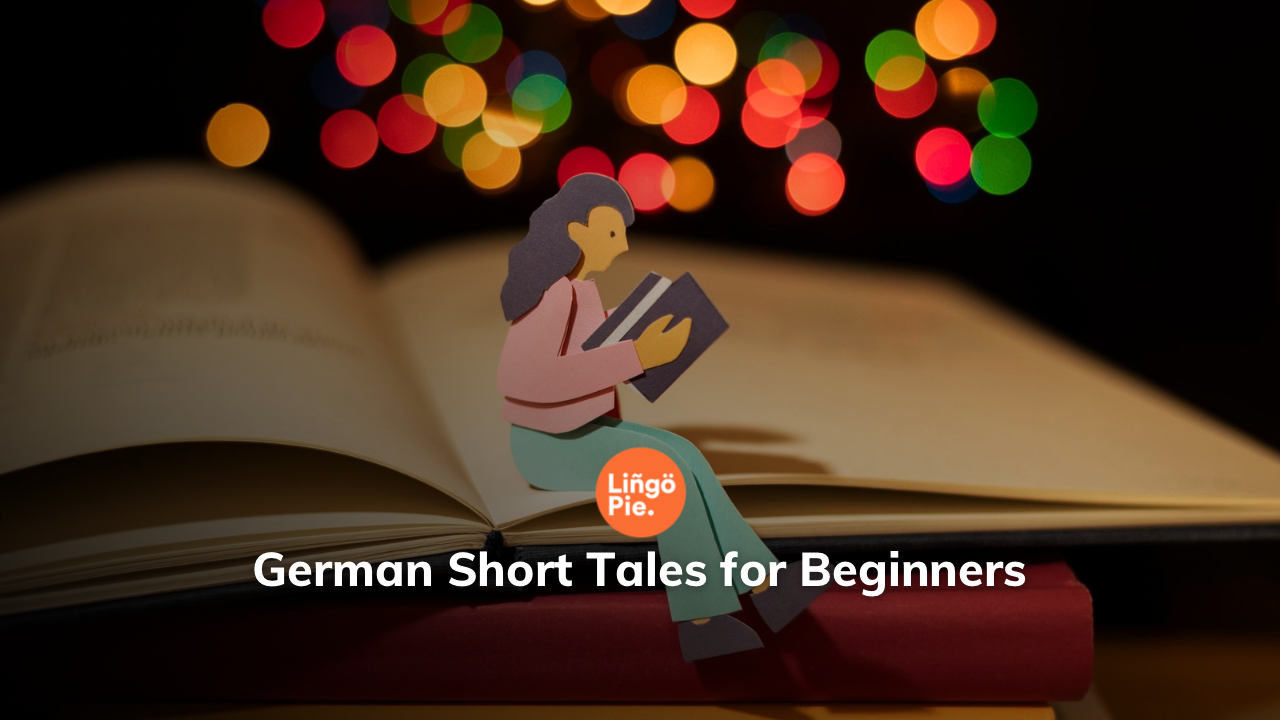

Classic German Fairy Tales and Stories

Classic German fairy tales and stories offer a magical journey into the world of German history and culture. These timeless tales are rich in moral lessons and provide valuable insights into the values and beliefs of the German people.
By reading these classic stories, you’ll not only be improving your German language skills but also gaining a deeper understanding of the history and culture of Germany.
Timeless Tales
Timeless German tales are perfect for language learners who want to immerse themselves in the rich history and culture of Germany. These stories often feature magical creatures, enchanted forests, and daring adventures, providing an engaging and enjoyable learning experience.
By reading these classic tales, you’ll be improving your German language skills while also gaining valuable insights into the traditions and beliefs of the German people.
Rich in German History
Classic German fairy tales and stories provide a unique window into the history and culture of Germany. These stories often feature characters and settings that are deeply rooted in German history, offering readers a fascinating glimpse into the past.
By reading these stories, you’ll not only be improving your German language skills but also gaining a deeper understanding of the historical events and cultural influences that have shaped modern-day Germany.
Lessons for Young and Old
Classic German fairy tales, originally published centuries ago, offer valuable lessons for readers of all ages. These timeless stories often contain moral lessons, emphasizing the importance of kindness, generosity, and the consequences of being selfish and greedy.
Furthermore, these stories provide a window into German culture and history, making them an invaluable resource for language learners who want to gain a deeper understanding of Germany and its people.
Modern German Children's Books for Intermediate Learners

Modern German children’s books offer a fresh perspective on language learning for intermediate learners. These books feature contemporary themes, diverse characters, and expanded vocabulary, providing a more challenging and engaging learning experience.
Reading these modern stories will not only enhance your German language skills but also provide valuable insights into contemporary German culture and society.
Contemporary Themes
Modern German children’s books often explore contemporary themes, such as:
- family
- friendship
- identity
- the environment
These stories provide a more relatable and engaging learning experience for intermediate learners, helping them better understand the current culture and society of Germany.
By reading these stories, you’ll not only be improving your German language skills but also gaining valuable insights into the issues and concerns facing modern German society.
Diverse Characters
One of the key features of modern German children’s books is their diverse cast of characters. These stories often feature protagonists from a wide range of backgrounds, offering readers a unique perspective on German culture and society.
By reading these stories, you’ll not only be improving your German language skills but also gaining valuable insights into the diverse and multicultural nature of modern Germany.
Expanding Vocabulary
Intermediate-level German children’s books offer a more challenging learning experience, with expanded vocabulary and more complex sentence structures. By reading these stories, you’ll be able to further develop your German language skills, improving your understanding of grammar and sentence structure while also expanding your vocabulary.
This will help prepare you for more advanced German language study and provide a solid foundation for future language learning.
Translated German Versions of International Bestsellers

For those who prefer to read familiar stories in the German version, translated versions of international bestsellers offer a unique learning opportunity. These books provide the same engaging stories you already know and love, but in German, allowing you to focus on expanding your vocabulary and improving your language skills.
In this part, we will examine the benefits of reading translated German versions of international bestsellers and suggest some popular titles to kick start your journey.
Familiar Stories
Reading familiar stories in German can be a comforting and enjoyable way to improve your language skills. By choosing stories you already know, you can focus on understanding the language without getting lost in the plot. This can be particularly helpful for intermediate learners who want to expand their vocabulary and improve their reading comprehension.
Some popular translated German versions of international bestsellers include “Harry Potter und der Stein der Weisen” (Harry Potter and the Philosopher’s Stone) and “Die Tribute von Panem” (The Hunger Games).
Extensive Vocabulary
Translated German versions of international bestsellers often feature more extensive vocabulary than original German children’s books, providing a more challenging learning experience for intermediate learners. By reading these stories, you’ll encounter a wider range of vocabulary and sentence structures, helping you further develop your German language skills.
Progressing through these books, you will acquire new words and expressions, enriching your language learning journey.
Reading Aloud Practice
Practicing reading aloud is an important aspect of language learning, as it helps improve pronunciation, fluency, and overall speaking skills.
Reading translated German versions of international bestsellers provides an excellent opportunity for reading aloud practice, as the engaging stories and familiar plotlines make the process more enjoyable. Reading these stories aloud enables you to focus on your pronunciation and intonation, assisting you in sounding more like a native speaker.
Tips for Parents and Teachers: How to Use German Children's Books for Language Learning

Parents and teachers play a crucial role in supporting language learners on their journey to mastering German. In this part, we’ll provide some practical tips to effectively utilize German children’s books for language learning, which includes:
- Choosing age-appropriate books
- Encouraging active reading
- Incorporating fun activities to keep learners engaged and motivated.
Choosing Age-Appropriate Books
Selecting age-appropriate German books is vital for ensuring a positive and successful learning experience. Consider the child’s age, language level, and interests when selecting books. Opt for books with simple language, engaging stories, and a manageable vocabulary to help learners build a strong foundation in German.
As the young boy progresses, gradually introduce more challenging books to help them further develop their language skills.
Encouraging Active Reading
Active reading is an essential skill for language learners, as it promotes better comprehension and retention of the material. Encourage children to actively engage with the text by asking questions, making connections, and discussing the characters and themes.
This not only enhances their understanding of the story but also cultivates critical thinking and analytical skills, which are invaluable for language learning.
Incorporating Fun Activities
The experience of language learning should be enjoyable and engaging. Incorporate fun activities related to the stories, such as games, crafts, and songs, to help reinforce the language and make learning more enjoyable.
These activities can also help learners better understand the cultural context of the stories and provide opportunities for them to practice their German language skills in a more relaxed and enjoyable setting.
LOVE THIS CONTENT?


Learn a language with Lingopie
When it comes to teaching children a new language, immersion is often the most effective approach. German children's books are a fantastic tool for this purpose, but to truly immerse young learners in the language, Lingopie is a valuable resource that shouldn't be overlooked.
Lingopie is an online platform that offers a vast library of foreign-language content, including German. What sets it apart is its innovative approach to language learning through entertainment. It combines popular German TV shows (including Netflix ones), cartoons and movies with interactive subtitles and translations. This engaging format allows children to enjoy captivating stories while simultaneously improving their language skills.
By watching their favorite characters in action and following along with the bilingual subtitles, children can expand their vocabulary, enhance comprehension, and improve pronunciation. Lingopie makes learning German not only educational but also fun and entertaining, fostering a genuine love for the language. It's a perfect complement to German children's books, creating a well-rounded language-learning experience that will benefit young learners for years to come.
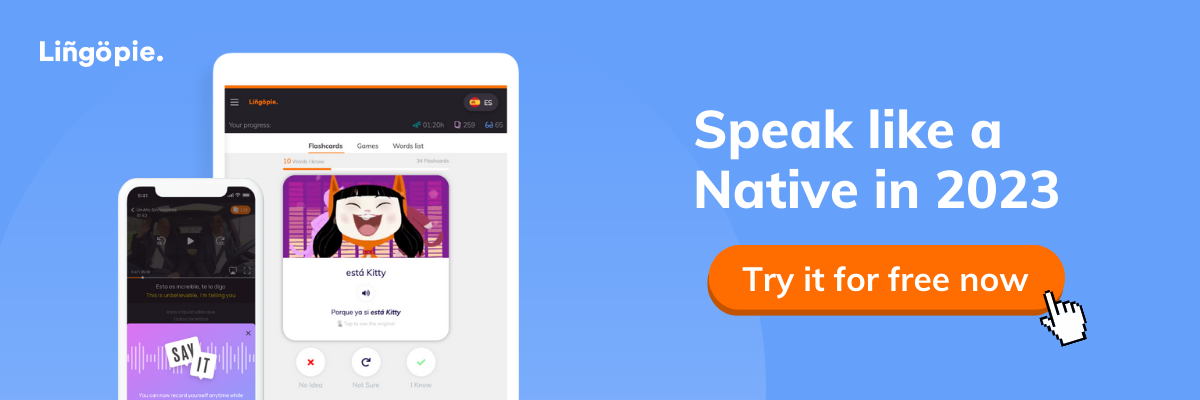
Summary
In conclusion, German children’s books offer an enjoyable and effective way to learn the language while also gaining valuable cultural insights. Whether you’re a beginner looking to build your vocabulary with free resources or an intermediate learner seeking a more challenging experience with modern stories and translated bestsellers, there is a wealth of German children’s literature waiting to be explored. With the right selection of books, active reading techniques, and engaging activities, you’ll be well on your way to mastering the German language and discovering the rich world of German culture.
Frequently Asked Questions
Can you learn German by reading German books?
Reading books is a great way to learn German; by starting with children's books and gradually progressing to more advanced texts, you can build up your confidence and expand your vocabulary. Starting with children's books is a great way to get comfortable with the language. You can learn the basics of grammar and pronunciation, and build up your confidence. As you progress to more advanced texts, you can expand your vocabulary and gain a better understanding of the language
How can I help my child learn German?
Encourage your child to learn German by finding a German-speaking babysitter, playing German games and apps, watching German TV and videos, listening to German music, and reading German children's books together. Finding a German-speaking babysitter is a great way to introduce your child to the language. You can also find German games and apps that are designed for children. Watching German TV and videos can also be a fun way to learn the language. Listening to German music is another great way to
What is the best book for self learning German for beginners?
For the best book to self-learn German for beginners, we recommend 'Practice Makes Perfect' as a comprehensive grammar guide to mastering the language. The 'Everything Learning German Book' is also an excellent resource to get the basics down and 'German Made Simple: Learn to Speak and Understand German Quickly and Easily' by Arnold Leitner offers a step-by-step approach. Additionally, 'The Everything Learning German Book' by Ed Swick provides simple phrases for ordering food or drinks in the language.
What are the advantages of learning German through children's books?
Learning German through children's books offers great advantages, such as building vocabulary, enjoying captivating stories, and gaining cultural understanding. These advantages make it an ideal way to learn the language. It is also a great way to introduce children to a new language in a fun and engaging way. Children's books are often written in simple language
What types of free German children's books are available for beginners?
Various free German children's books for beginners are available, including online resources, public domain classics, and publications from federal German agencies.


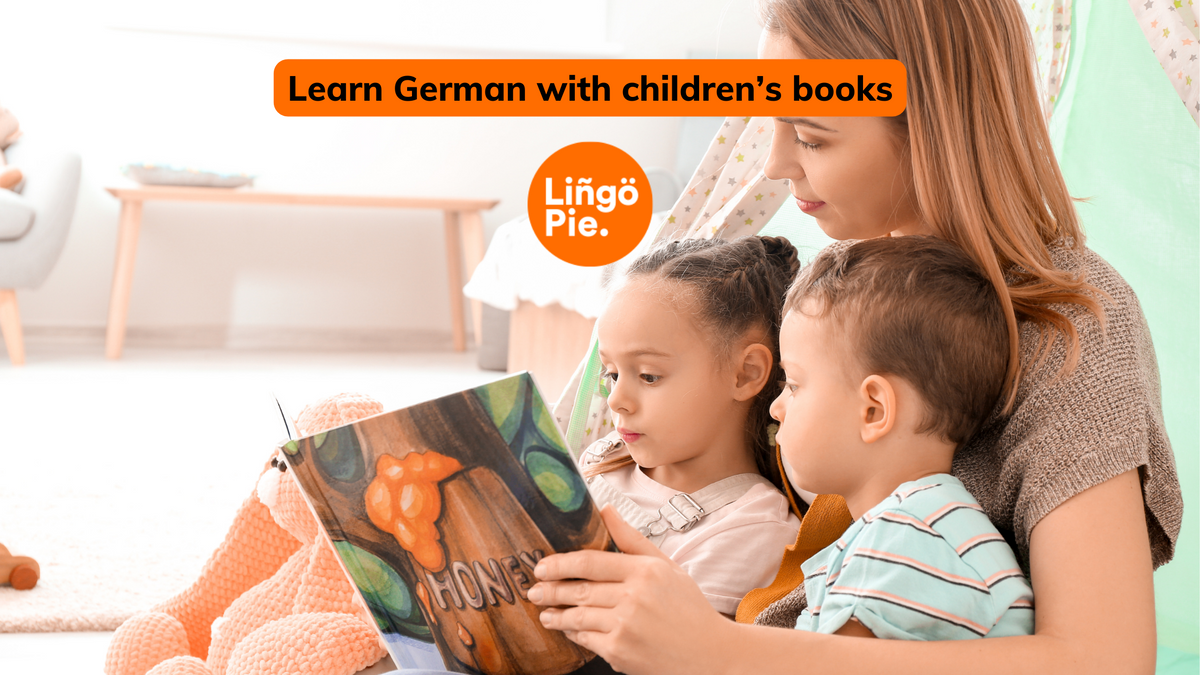


![Best Tv Shows to Learn Japanese on Netflix [For Beginners]](/blog/content/images/2023/09/C-pia-de-imgs-blog---Spanish-1--10-.png)




